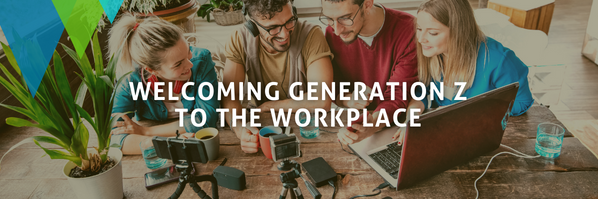Welcoming Generation Z to the workplace
As time trundles forward and we embrace 2024, it's worth reflecting on the evolving demographics of the workforce. Generation Z, born between 1997 and 2012, is poised to surpass Millennials as the most populous generation on earth. They are expected to make up 1 in 3 of the world's population and account for 27% of the workforce by 2025.
Despite this monumental shift, set to shape the fate of industries and businesses, it seems that few organisations are adequately prepared. Are you?
Who is Gen-Z?
It’s important to understand their sentiments and the impact they will have on the workplace, business, and the economy. Given their experience of growing up in the aftermath of the recession, being educated remotely through the global pandemic, and alongside the harsh current realities of the Irish housing market, we see a pragmatic generation. They are focused on carving out a career aligning with their values that offers a future of opportunity.
Gen-Z arrives as digital natives, being early adopters of emerging technology, coupled with a notably higher standard of education compared to previous generations. Their adeptness in implementing technology, processes, and systems not only reduces complexity but also mitigates overall risk for organisations investing in technology.
How can companies appeal to this generation?
Promote a commitment to career progression and growth: The Gen-Z workforce actively seeks opportunities for advancement and development in their careers. Organisations responding to their desire for financial security, entrepreneurial mentality, and competitive spirit will pave the way for success.
Flexibility and remote work: Gen-Z want to be more than their jobs and want their employers to know the same. They are willing to work hard to develop their careers and achieve success, but not at the expense of mental health or a lack of work-life balance. Permanent flexible working alternatives like core-hour models, a combination of at-home remote and on-site work, and four-day work weeks provide viable approaches for attracting this talent. Or, simply put - allowing employees greater freedom to decide which hours they work, so long as the work gets done.
Emphasise ethics and social awareness: Gen-Z evaluates organisations not only based on the products and services they offer but also on their ethics, practices, and social impact. Key focus areas for assessment and definition with Gen-Z include climate change & sustainability, equal pay, diversity & inclusion, and social responsibility.
Employee engagement and retention: The level of mental and emotional commitment that Gen-Z employees have toward their role, team and employer is lower compared to previous generations. Organisations must proactively address this to prevent retention issues. Internal practices related to communication tools, meeting points, mentoring, and social activities are crucial for enhancing engagement.
Today’s Youthful Employees are Tomorrow’s Leaders.
Companies need to develop new strategies to accommodate the evolving demographics of the workforce and engage in long-term planning for adaptation. Organisations that fail to adapt, remaining fixated on the past, will be left behind.

